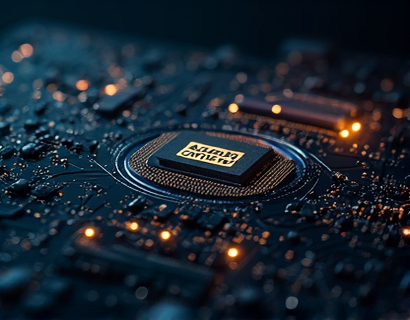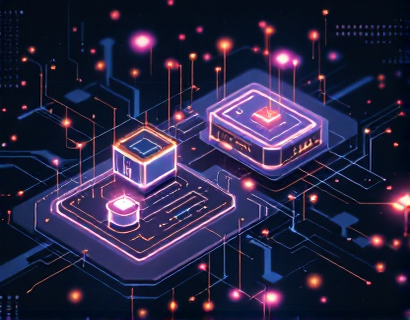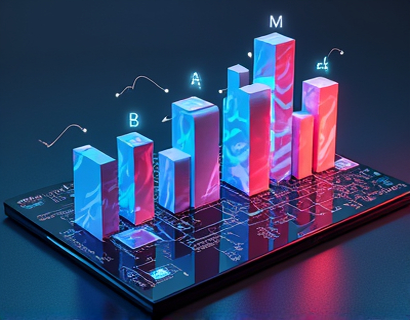Blockchain Oracle Management: Optimizing Data Integration and Smart Contract Execution for Decentralized Applications
In the rapidly evolving landscape of blockchain technology, the role of oracles emerges as a critical component for connecting decentralized applications (DApps) with external data sources. Oracle management, therefore, becomes a focal point for developers and businesses aiming to harness the full potential of blockchain. This article delves into the cutting-edge software solutions that revolutionize oracle management, focusing on optimizing data integration and enhancing smart contract execution. By doing so, it aims to provide a comprehensive guide for blockchain professionals to maximize the efficiency and reliability of blockchain services.
Understanding Oracle Management in Blockchain
Oracle management in blockchain refers to the process of integrating external data sources into smart contracts, enabling DApps to access and utilize real-world data. Oracles act as intermediaries, fetching data from off-chain sources and relaying it to the blockchain, or vice versa, facilitating two-way communication. Effective oracle management ensures that this data is accurate, timely, and secure, which is essential for the seamless operation of DApps.
The Challenges of Traditional Oracle Solutions
Traditional oracle solutions often face several challenges that hinder the optimal functioning of DApps. These include data latency, security vulnerabilities, and limited scalability. Data latency can lead to outdated information being used by smart contracts, resulting in incorrect decisions. Security is a paramount concern, as oracles can become targets for malicious attacks, potentially compromising the integrity of the blockchain. Lastly, scalability issues arise when handling large volumes of data, leading to bottlenecks and increased transaction costs.
Advanced Software Solutions for Oracle Management
To address these challenges, innovative software solutions have emerged, designed to optimize oracle management and enhance blockchain service access. These platforms employ advanced technologies such as machine learning, distributed systems, and cryptographic protocols to ensure reliable and efficient data integration. By leveraging these technologies, the platforms can reduce latency, enhance security, and improve scalability, thereby unlocking the full potential of blockchain technology.
Real-Time Data Integration
One of the key features of advanced oracle management platforms is their ability to provide real-time data integration. By utilizing a network of decentralized data sources and employing sophisticated algorithms, these platforms can fetch and verify data in near real-time. This ensures that smart contracts have access to the most current information, enabling DApps to make informed decisions instantly. For instance, in financial DApps, real-time market data can be crucial for executing trades at optimal prices.
Enhanced Security Measures
Security is a top priority in oracle management, and advanced platforms incorporate multiple layers of security to protect against potential threats. These include decentralized data sourcing, where data is aggregated from multiple independent sources, reducing the risk of a single point of failure. Additionally, cryptographic techniques such as zero-knowledge proofs and homomorphic encryption are used to ensure data privacy and integrity. Smart contracts interact with these secure data channels, minimizing the risk of manipulation or tampering.
Scalability and Performance Optimization
To handle the increasing demand for data in DApps, advanced oracle management solutions focus on scalability and performance optimization. These platforms use distributed computing and caching mechanisms to manage large volumes of data efficiently. By distributing the load across multiple nodes, the system can handle high traffic without compromising on speed or reliability. Furthermore, intelligent routing algorithms ensure that data is fetched and processed in the most efficient manner, reducing latency and transaction costs.
Benefits of Optimized Oracle Management
The implementation of advanced oracle management solutions brings numerous benefits to developers and businesses. Firstly, it enhances the reliability of DApps by ensuring that smart contracts have access to accurate and up-to-date data. This reliability is crucial for applications in sectors such as finance, supply chain, and healthcare, where data accuracy can have significant implications. Secondly, the improved security measures protect against potential attacks, fostering trust among users and stakeholders. Lastly, the scalability and performance optimizations enable DApps to handle growing user bases and data volumes seamlessly, driving broader adoption and innovation.
Use Cases in Various Industries
The applications of optimized oracle management extend across various industries, each with its unique requirements and challenges. In the financial sector, oracles can provide real-time market data for decentralized exchanges, enabling fair and transparent trading. In the supply chain industry, oracles can track the movement of goods and verify the authenticity of products, enhancing transparency and reducing fraud. In the Internet of Things (IoT), oracles can aggregate data from numerous devices, facilitating smart contract execution based on sensor inputs. These use cases demonstrate the versatility and importance of robust oracle management solutions.
Implementing Advanced Oracle Management in DApps
For developers looking to integrate advanced oracle management into their DApps, several steps and considerations are essential. First, it is crucial to select a reliable and scalable oracle solution that aligns with the specific needs of the application. This involves evaluating factors such as data sources, security features, and performance metrics. Once a suitable platform is chosen, the next step is to design the smart contracts to interact with the oracle efficiently. This includes defining the data requirements, setting up event listeners, and handling data updates in a secure and efficient manner.
Developers should also focus on implementing robust error handling and fallback mechanisms to manage potential issues such as data delays or failures. Testing and monitoring are critical to ensure the system operates as expected and to identify and address any issues promptly. By following these best practices, developers can leverage the full potential of advanced oracle management, creating DApps that are reliable, secure, and scalable.
Future Trends in Oracle Management
The field of oracle management is continually evolving, driven by advancements in blockchain technology and the growing demand for decentralized applications. Future trends include the integration of artificial intelligence and machine learning to predict and optimize data fetching, further reducing latency and improving accuracy. The development of cross-chain oracles will enable seamless data exchange between different blockchain networks, enhancing interoperability and expanding the ecosystem. Additionally, the rise of decentralized data marketplaces will provide more flexible and cost-effective data sourcing options, empowering developers to build more sophisticated DApps.
Conclusion
Optimizing oracle management is essential for the success and scalability of decentralized applications. By addressing the challenges of data latency, security, and scalability, advanced software solutions can significantly enhance the performance and reliability of DApps. As the blockchain ecosystem continues to grow, the importance of efficient oracle management will only increase, driving innovation and broader adoption. For developers and businesses, embracing these cutting-edge solutions is key to unlocking the full potential of blockchain technology.










































